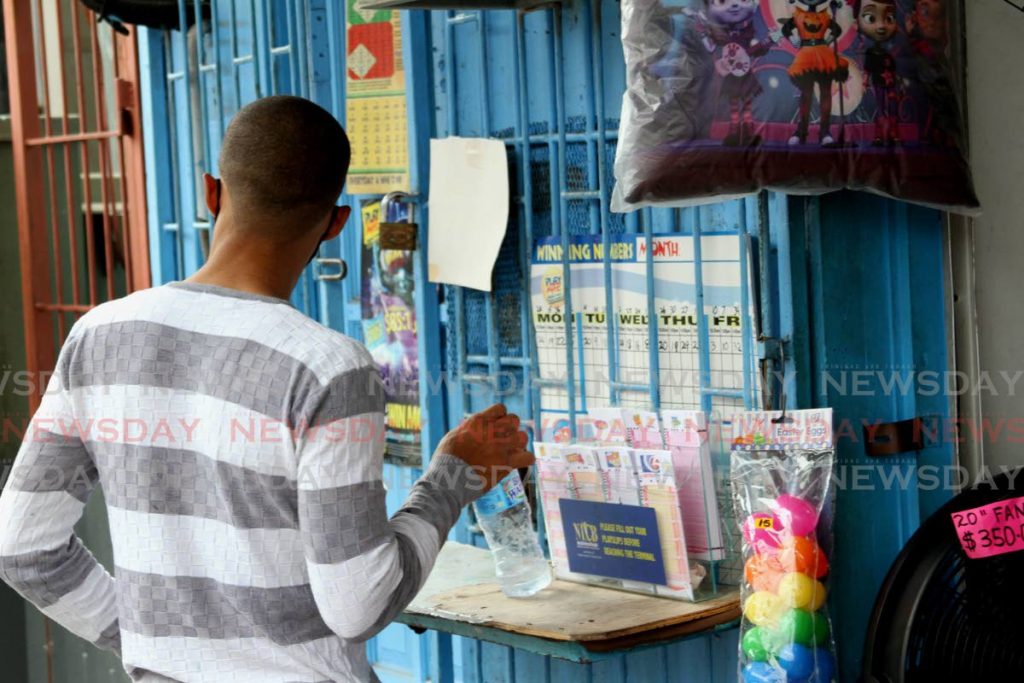Gambling addiction is cause for concern in Trinidad and Tobago

Gambling addiction is real, is a cause for concern and in some cases, can have negative social effects similar to that of cocaine addiction.
This was the warning raised by Garth St Clair, co-founder of radio talk show programme Eye on Dependency, as he spoke at the National Lottery Board's (NLCB) virtual media launch of its responsible gaming campaign.
While the body is not being poisoned by addictive substances, when it comes to gambling addiction, a person's financial health, mental health and family/relationships health can be adversely affected. Compulsive gambling affects not only the life of the gambler but his/her work environment and also the lives and well-being of his/her family.
It is for this reason that the NLCB has partnered with Eye on Dependency to have anti-gambling addiction awareness raised on the talk show's programmes.
"Someone who has a crack (cocaine) problem is almost similar to someone who has a gambling problem. The same denial, the same overspending, trying to achieve that 'high' you constantly have to chase, and you will never achieve it after that same hit," St Clair said.
There is a big difference between an avid lotto player and someone who is addicted to gambling. St Clair said an avid player will maybe wake up with a dream or get a hunch and play a mark. They may win or they may lose, but they pay no mind to the result.
"It's not compulsive. Let's say they are occupied with something, they would not run away to play that mark. They would not be irritated if they could not get the chance to run away and play the mark."
However, a gambling addict will find every reason possible to go to a lotto booth to play. A gambling addict, he said, will mind a mark, and play it for weeks or months in the belief they will win...eventually. An addict will pour all of his/her money; or money belonging to a spouse or relative, into that mark in the hope of striking it with lady luck. All sense of reason goes out the window, he said.
"The person who has that problem will go after that, especially if they won the first time. They would play all the draws, play all the scratch they get. Even if they win, they would continue to chase that 'high.' It is as if they take that first shot of rum or cocaine, they want to live through that constantly."
However, like all first highs, St Clair said, it is impossible to relive, and that person will develop a problem because every time they lose, there is a crash. "Just like when they crash from cocaine, they want more."
Other signs of gambling addiction include: obsession with gambling; gambling despite consequences; gambling to improve happiness; denying there is a problem; mood swings; inability to stop gambling; psychological withdrawal when not gambling; stealing or other law-breaking to gamble; financial problem and hiding gambling.
"If you look at the signs of a crack addict, it is almost similar to what happens." The pandemic, St Clair said, further exposed gambling problems, particularly for those who had to work from home.
The Emmanuel Community, The Rebirth House and Serenity Place Empowerment Centre for Women are the NGOs Eye on Dependency are working with to support helping those with gambling addiction. Posters for the contact numbers of these facilities will be hung at all NLCB outlets.
St Clair said Eye on Dependency and NLCB will continue to share the numbers so that people can get the help they need.
"Gambling is supposed to be fun, but any time it turns to be compulsive and addictive behaviour, it becomes a problem...If you need that help, please do not hesitate. Call the numbers."
Where to get help
If you require counselling and addiction treatment services or know someone who does, help can be sought from the Emmanuel Community at 628-1064 or the Rebirth House and Serenity Place Empowerment Centre for Women, whose number is: 466-3166.

Comments
"Gambling addiction is cause for concern in Trinidad and Tobago"